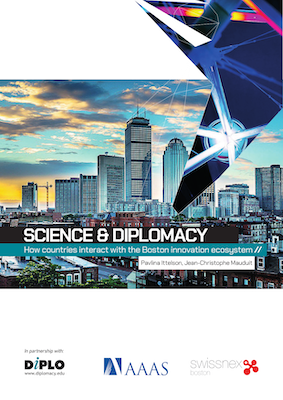Note: This article is a part of the publication ‘Science diplomacy capacity development: Reflections on Diplo’s 2021 course and the road ahead’
My attendance of this 10-week high level course on Science Diplomacy with Diplo allowed me to understand how the connection between diplomacy and science can be a driver of progress in several areas related to the sustainable development goals (SDGs). We have seen that engaging in Science Diplomacy requires the implementation of a set of actions and mechanisms, such as the development of robust, efficient, and lasting scientific and technological capabilities, institutional transformations to allow the appointment of science attachés or advisors in ministries of foreign affairs or embassies, and the development of a science-policy interface.
Engaging scientists, diplomats, and policy-makers in the development of science-informed policies through exchanges and joint construction of knowledge is crucial for addressing current and future challenges. This highlights the importance of a science-policy interface in supporting this process. I also found out that it is possible to use artificial intelligence to support diplomatic negotiation processes. Developing countries should use the opportunity to improve their regional and international negotiations on issues such as health, climate, peace, security, economy and energy.
As we can see, Science Diplomacy is a promising tool that developing countries should use to accelerate progress towards the SDGs. My ambition after this course is to integrate Science Diplomacy in the actions of the think tank I chair, namely the GRADES (Groupe de Recherche et d’Action en Diplomatie Et Santé), which works to use the mechanisms of diplomacy to achieve health goals. The course allows us to expand the scope of our think tank to Science Diplomacy, which remains little-known, in order to advance this practice in west Africa.
GRADES expects to become a future key player in Science Diplomacy. This will be done through the sensitization and mobilization of Science Diplomacy actors such as nations and their representatives (foreign ministries, embassies, diplomats, official representatives), other ministries or departments, international organizations, scientific academies, individual scientists, civil societies and the private sector around the practice of Science Diplomacy.
We need to do a knowledge transfer in Science Diplomacy through the strengthening of different actors’ capacities in French-speaking countries. In addition, GRADES will position itself as a ‘boundary spanning’ organization in the science-policy interface in order to mediate between science and policy, to enhance communication and collaboration between researchers and policymakers in the science-policy interface.
Science Diplomacy represents an opportunity and a promising tool that can help nations in the achievement of SDGs. A huge effort is needed in most developing countries. Through this course in Science Diplomacy, GRADES will work to create the appropriate conditions for its implementation through the necessary institutional transformations and capacity building of human resources.








